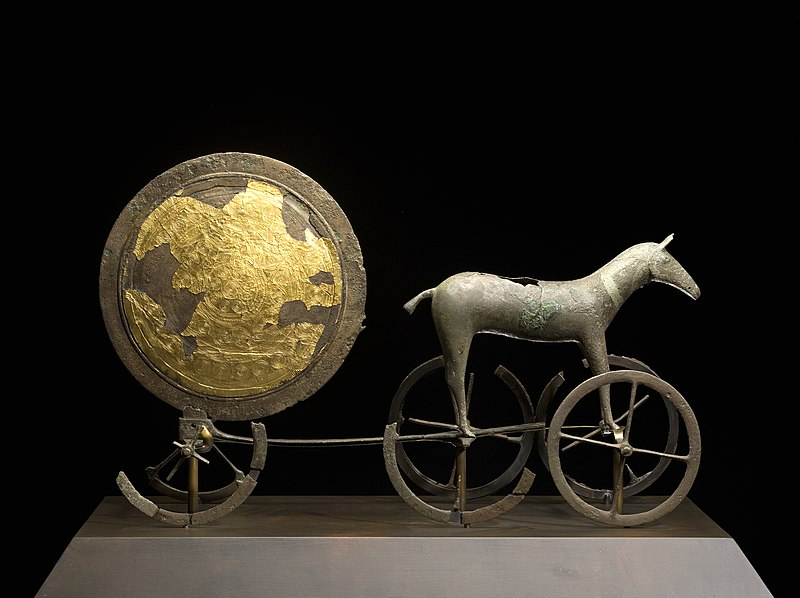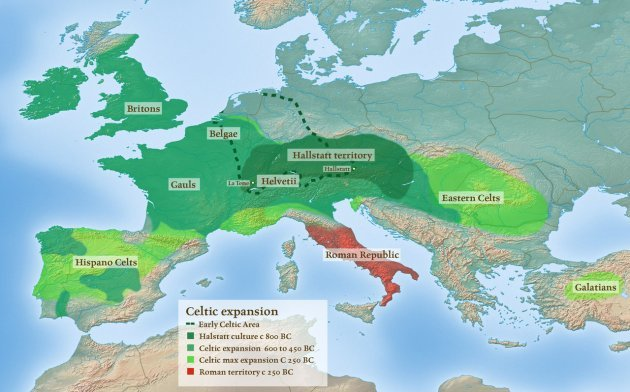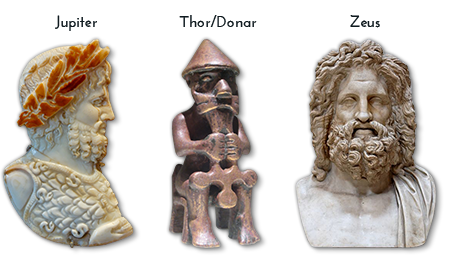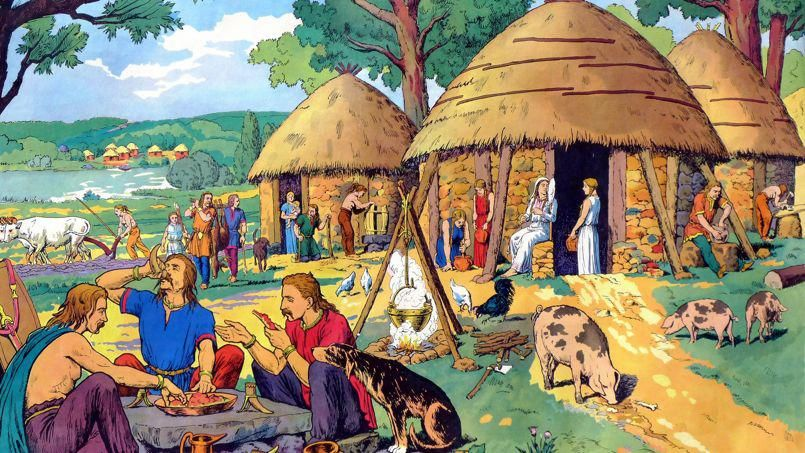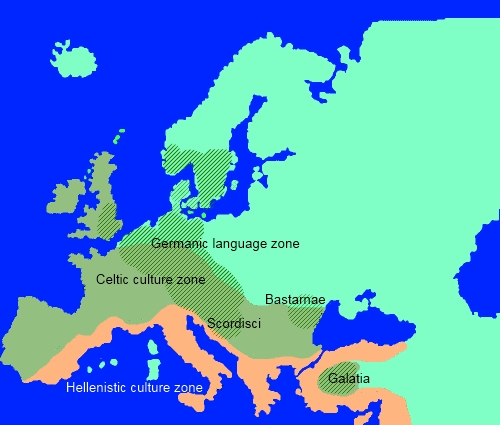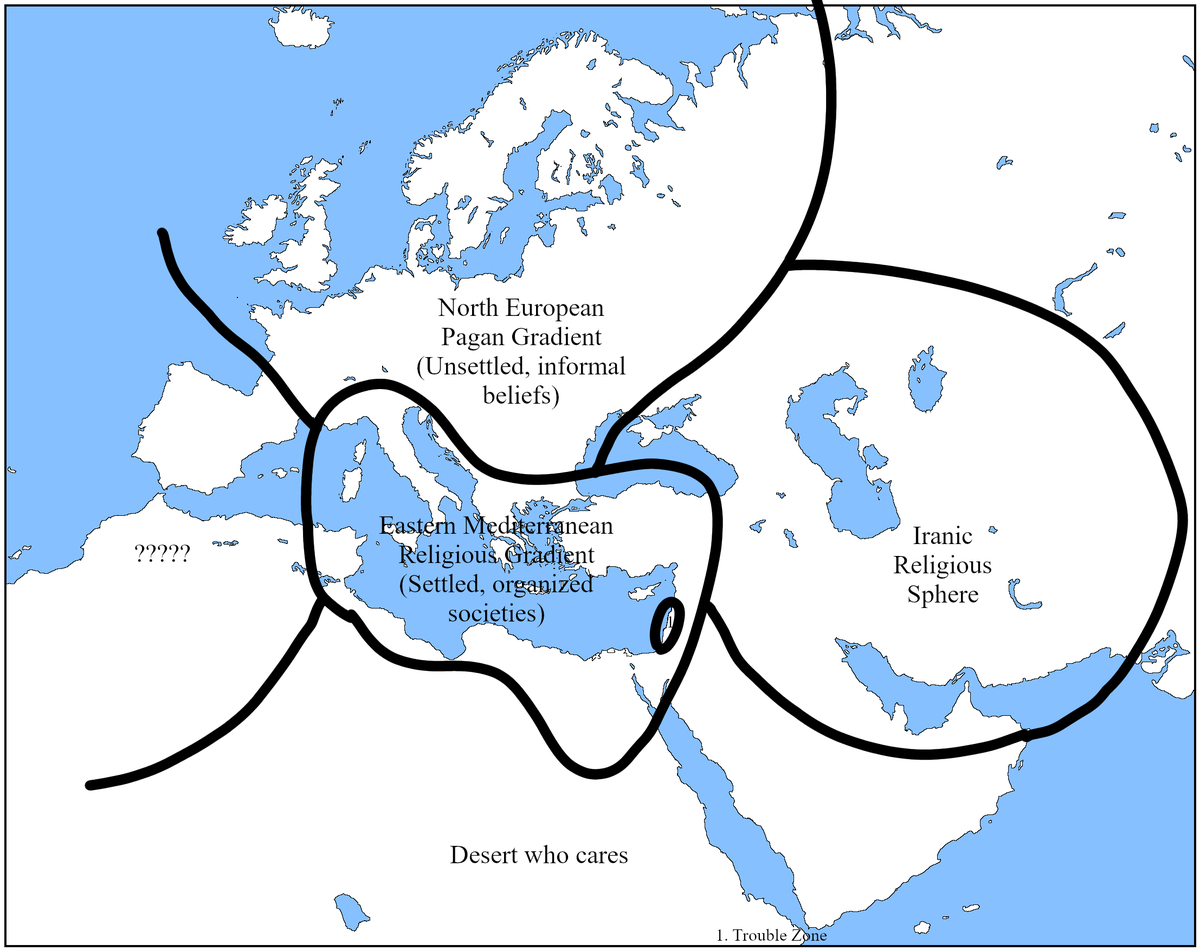A seemingly intuitive idea for reconstructing the religions of the Indo-European peoples is that their beliefs would ultimately be closer to one another than to anyone else's. This holds up to basic scrutiny, with cognate gods appearing in places as distant as India and Ireland
However, this does not appear to have been the case. My own research has led me to believe there was a stark contrast between the settled IE peoples in Europe (Romans, Greeks) and the unsettled ones (Celts, Germans). To such an extent I'd hesitate calling them the same faith
While again, cognate gods exist in both, the similarities seemingly end with the most basic religious constructs. Sky father exists, sacred twins exist, but their daily lives were so radically different that religion took on incredibly different roles.
Among the settled peoples, while religion was obviously an important part of their lives, much of what they did existed outside of realm of spirituality. Your typical urban Roman and Egyptian bakers had much more in common with one another than did the Roman with a Celtic hunter
But for the Pagans of transalpine Europe, it was a different story entirely. Every aspect of life had a religious component, to such an extent that you could hardly call it a religion, and more like what they considered to be rational actions.
For them, something as simple as making an ointment required an invocation of a god, even with all the ingredients readily available. The spiritual aspect was seen as simply another ingredient, and without it the ointment (to their understanding) wouldn't work.
This mindset existed among those peoples long after Christianization, and its thought that the original denouncing of witchcraft came from the Church's efforts to stamp these practices out.
So at the risk of creating some kind of heretical unorthodoxy in the Kali/Acc sphere, I posit that this is probably closer to reality than the Indo-European universalism that seems to be the norm in this community.
The implications of this is that Germanic and Celtic beliefs were closer to Uralic ones than they were Roman. Likewise, Greco-Roman Hellenism more closely resembled the religions in Etruria, Ancient Egypt, and Carthage than did they their cousins' practices beyond the Alps.
This is a simple consequence of societal and cultural development among those groups. It stands within reason that things like sacred grove worship would hardly be relevant in the lives of people who lived in dense, coastal, Mediterranean cities
Likewise, an organised ceremony at a massive temple is hardly conducive to life in the chilly forests of Northern Europe.

 Read on Twitter
Read on Twitter